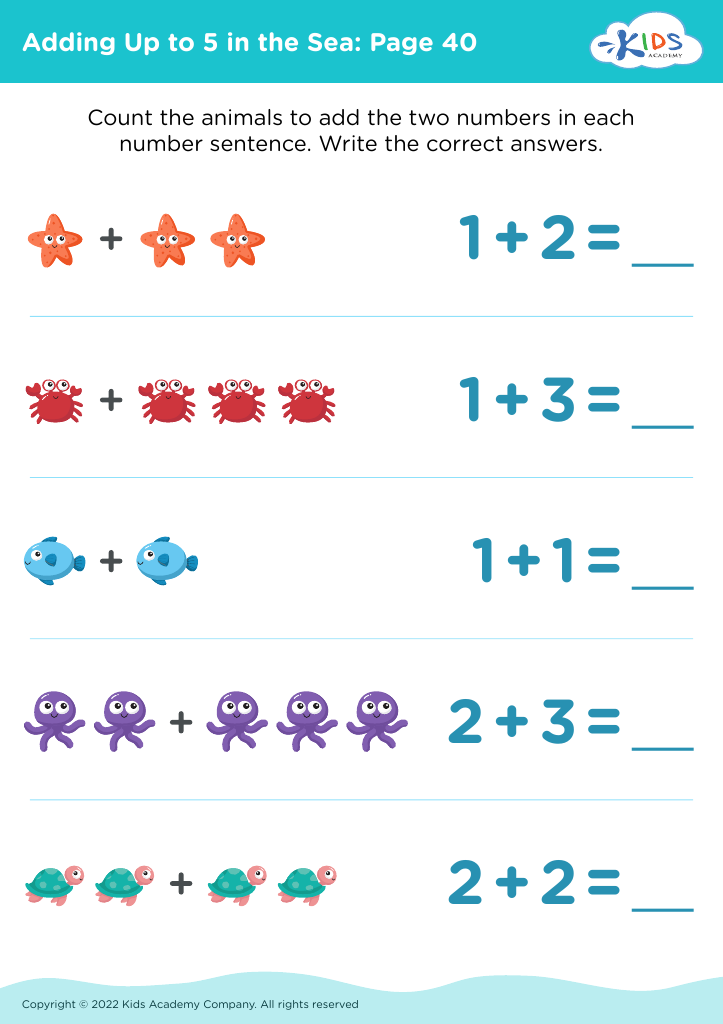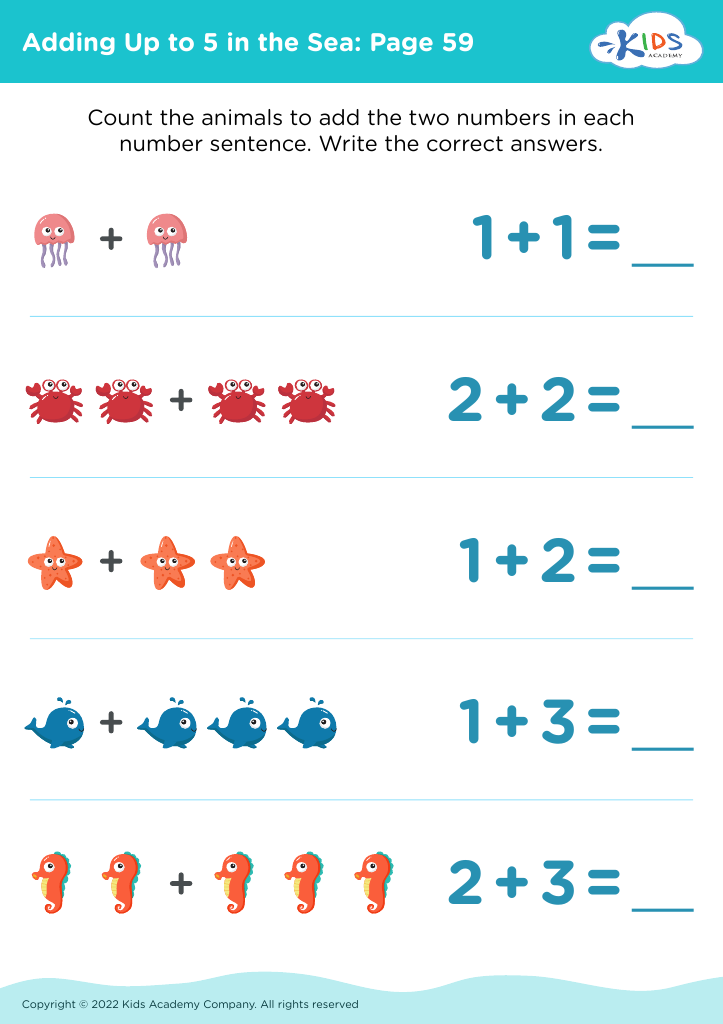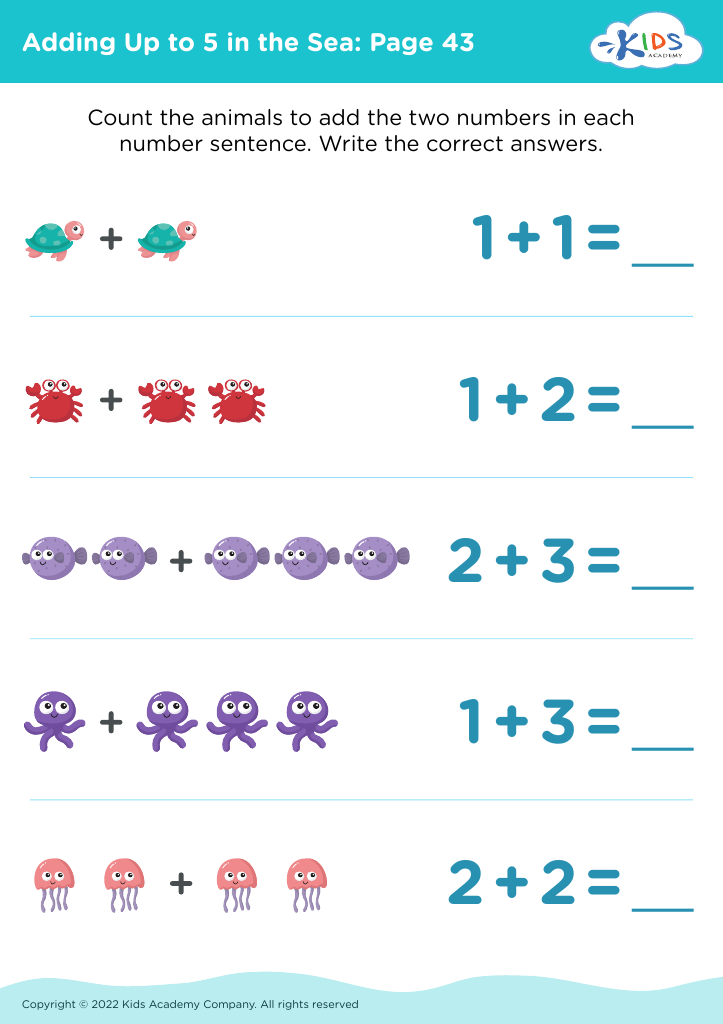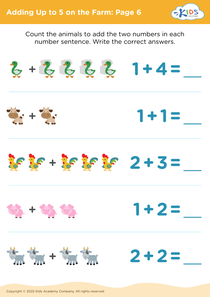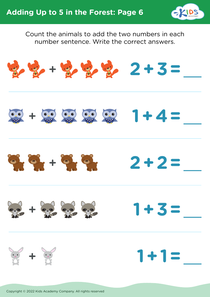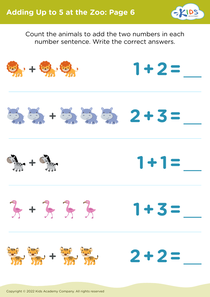Basic addition practice Adding in the Sea Worksheets for Ages 5-6
3 filtered results
-
From - To
Dive into fun with our "Basic Addition Practice: Adding in the Sea" worksheets, perfect for ages 5-6! These engaging, ocean-themed printables help young learners master basic addition skills through playful sea creatures and underwater adventures. Each worksheet is crafted to enhance mathematical understanding and build foundational skills. Children will love solving problems while exploring vibrant sea life. Designed by educational experts, these activities are ideal for practicing addition in a joyful, imaginative way. Spark your child's interest in math with our exciting, under-the-sea worksheets that make learning both enjoyable and effective. Download now for delightful math practice!
Parents and teachers should pay attention to basic addition practice, such as the "Adding in the Sea" activity for ages 5-6, due to its foundational role in a child's education. Basic addition is one of the first steps in developing mathematical competency, an essential skill used throughout life, from simple tasks like counting change to solving complex problems. Introducing these concepts creatively and engagingly fosters early numeracy skills and a positive attitude towards math.
"Adding in the Sea" captures a child's imagination with its sea-themed context, making learning engaging and fun. It helps learners associate math with enjoyable activities rather than perceiving it as a chore. This engagement is critical at an early age as it can shape their long-term attitude towards the subject.
Moreover, such exercises improve cognitive development, enhancing memory, attention, and problem-solving skills. These abilities are not only vital for academic success but also for everyday life. By creating a supportive and encouraging learning environment, parents and teachers can help children gain confidence in their abilities, setting a strong foundation for future learning. Furthermore, early acquisition of these skills can lead to improved performance in other academic areas, fostering overall intellectual growth.
